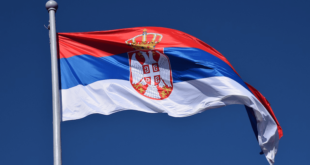“Europe will never allow parts of our society to be stigmatised: be it because of whom they love, because of their age, their ethnicity, their political opinions, or their religious beliefs.”
President Ursula von der Leyen, (European Parliament, 7 July 2021)
Equality and the respect for dignity and human rights are core values of the EU, enshrined in Article 2 of the Treaty of the European Union. The Commission will use all the instruments at its disposal to defend these values.
The Commission is launching infringement procedures against Hungary and Poland related to the equality and the protection of fundamental rights.
On Hungary, the cases include the recently adopted law, which in particular prohibits or limits access to content that promotes or portrays the so-called ‘divergence from self-identity corresponding to sex at birth, sex change or homosexuality’ for individuals under 18; and a disclaimer imposed on a children’s book with LGBTIQ content.
In relation to Poland, the Commission considers that Polish authorities failed to fully and appropriately respond to its inquiry regarding the nature and impact of the so-called ‘LGBT-ideology free zones’ resolutions adopted by several Polish regions and municipalities.
The two Member States now have two months to respond to the arguments put forward by the Commission. Otherwise, the Commission may decide to send them a reasoned opinion and in a further step refer them to the Court of Justice of the European Union.
Hungary: Banning LGBTIQ content and book disclaimer
Access to content that portrays homosexuality for individuals under 18
On 23 June 2021, Hungary published a law that lays down a number of restrictive and discriminatory measures; in particular, it prohibits or limits access to content that propagates or portrays the so-called ‘divergence from self-identity corresponding to sex at birth, sex change or homosexuality’ for individuals under 18. The protection of minor is a legitimate public interest which the EU shares and pursues. However, in this case Hungary has failed to explain why the exposure of children to LGBTIQ content as such would be detrimental to their well-being or not in line with the best interests of the child The Commission has thus decided to send Hungary a letter of formal notice because it considers that the law violates a number of EU rules. First, the Audiovisual Media Services Directive (AVMSD) has been breached as regards standards for audio-visual content and the free provision of cross-border audiovisual media services, as Hungary put in place unjustified restrictions that discriminate against people based on their sexual orientation and are moreover disproportionate. Second, some of the contested provisions infringe the e-commerce Directive (namely the country of origin principle). The law prohibits the provision of services displaying content showing different sexual orientations to minors, even if these services originate from other Member States. Third, Hungary failed to justify the restricting of cross-border information society services. Fourth, Hungary failed to notify in advance to the Commission some of the contested provisions despite the obligation to do so laid down in the Single Market Transparency Directive. Fifth, the Commission considers that Hungary has violated the Treaty principles of the freedom to provide services (Article 56 TFEU) and the free movement of goods (Article 34 TFEU), by failing to demonstrate that the restrictions are duly justified, non-discriminatory, and proportionate. Sixth, the right to data protection laid down in the GDPR and Art. 8 Charter are violated by some of the contested provisions. Finally, the Commission believes that in these fields falling into the area of application of EU law, the Hungarian provisions also violate human dignity, freedom of expression and information, the right to respect of private life as well as the right to non-discrimination as enshrined respectively in Articles 1, 7, 11 and 21 of the EU Charter of Fundamental Rights. Because of the gravity of these violations, the contested provisions also violate the values laid down in Article 2 TEU.
Disclaimer on children book with LGBTIQ content
On 19 January 2021, the Hungarian Consumer Protection Authority obliged the publisher of a book for children presenting LGBTIQ people to include a disclaimer that the book depicts forms of ‘behaviour deviating from traditional gender roles’. This equates to restricting the right to freedom of expression and the right to non-discrimination as enshrined in Articles 11 and 21 of the EU Charter of Fundamental Rights and breaches the Unfair Commercial Practices Directive. The Commission has decided to send Hungary a letter of formal notice because it considers that by imposing an obligation to provide information concerning a divergence from ‘traditional gender roles’, Hungary restricts the freedom of expression of authors and book publishers, and discriminates on grounds of sexual orientation in an unjustified way. In particular, Hungary failed to justify the restriction of these fundamental rights, nor has it provided any justification as to why exposure of children to LGBTIQ content would be detrimental to their well-being or not in line with the best interests of the child.
Poland: ‘LGBT-ideology free zones’
From 2019, several Polish municipalities and regions adopted resolutions on the creation of so-called ‘LGBT-ideology free zones’. The Commission is concerned that these declarations may violate EU law regarding non-discrimination on the grounds of sexual orientation. It is therefore necessary to carry out a detailed analysis of the compatibility of the resolutions with EU law. In order to complete this assessment, the Commission needs adequate and comprehensive information from the Polish authorities. Despite a clear call by the Commission in February, to date Polish authorities have failed to provide the requested information, manifestly omitting to answer most of the Commission’s requests. Poland is thus hampering the Commission’s ability to exercise its powers vested under the Treaties and failing to comply with the principle of sincere cooperation under Article 4(3) TEU, which requires Member States to provide genuine cooperation to the Union’s institutions. Therefore, the Commission has decided to send a letter of formal notice to Poland for its lack of cooperation.
Background
Equality and non-discrimination are core principles in the EU, enshrined in its Treaties and in the Charter of Fundamental Rights. In recent decades, legislative developments, case law and policy initiatives have improved many people’s lives and helped us build more equal and welcoming societies, including for LGBTIQ people. Still, discrimination against LGBTIQ people persists throughout the EU, which is why the EU has to be at the forefront of efforts to better protect LGBTIQ people’s rights.
On 12 November, the Commission presented the first-ever EU Strategy for lesbian, gay, bisexual, trans, non-binary, intersex and queer (LGBTIQ) equality, as announced by President von der Leyen in her 2020 State of the Union Address. The Strategy sets out a series of targeted actions around four main pillars, focused on: tackling discrimination; ensuring safety; building inclusive societies; and leading the call for LGBTIQ equality around the world.
 Eurasia Press & News
Eurasia Press & News



